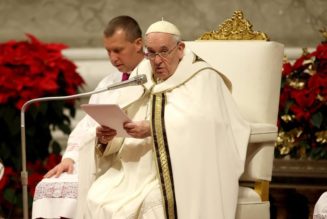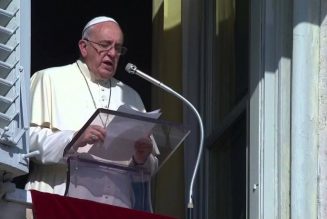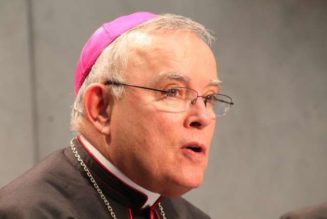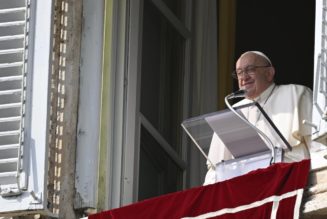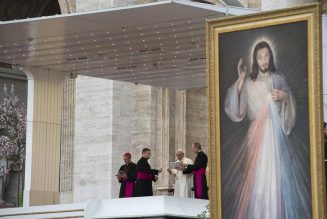“He is there. … Any affront to a little one, a poor person, a defenseless person, is done to Him.”
After praying the Angelus prayer with the crowd, the pope said that he was saddened by the recent violence that broke out in a prison in Guayaquil, Ecuador, where more than 100 people were killed by inmates belonging to revival gangs.
“May God help us heal the wounds of crime that enslaves the poorest, and help those who work every day to make prison life more humane,” he said.
Pope Francis also offered prayers for the people of Myanmar, who continue to suffer eight months after the military coup toppled the civilian government.
“I wish once again to implore God for the gift of peace for the beloved land of Myanmar: so that the hands of those who live there no longer have to dry tears of pain and death, but may cling to overcome difficulties and work together for the advent of peace,” the pope said.

The pope encouraged Catholics to renew their commitment to pray the rosary during the month of October and pointed to the example of Blessed Maria Antonia Samà and Blessed Gaetana Tolomeo, two recently beatified lay women who had great devotion to praying the rosary from their sick beds.
“Sustained by divine grace, they embraced the cross of their illness, transforming their pain into praise to the Lord,” Pope Francis said.
“Their sickbeds became a spiritual reference point and a place of prayer and Christian growth for many people who found comfort and hope there. Let us applaud the new Blesseds!”
Before the Angelus prayer on Sunday, the pope greeted the participants in a social sciences conference taking place in Vatican City.
“In these times of opulence, when it should be possible to put an end to poverty, the powerful with a one-track mind say nothing about the poor, the elderly, immigrants, the unborn and the seriously ill,” he said.
(Story continues below)
“Invisible to the majority, they are treated as disposable. And when they are made visible, they are often presented as an unworthy burden on the public budget. It is a crime against humanity.”
Join Our Telegram Group : Salvation & Prosperity

